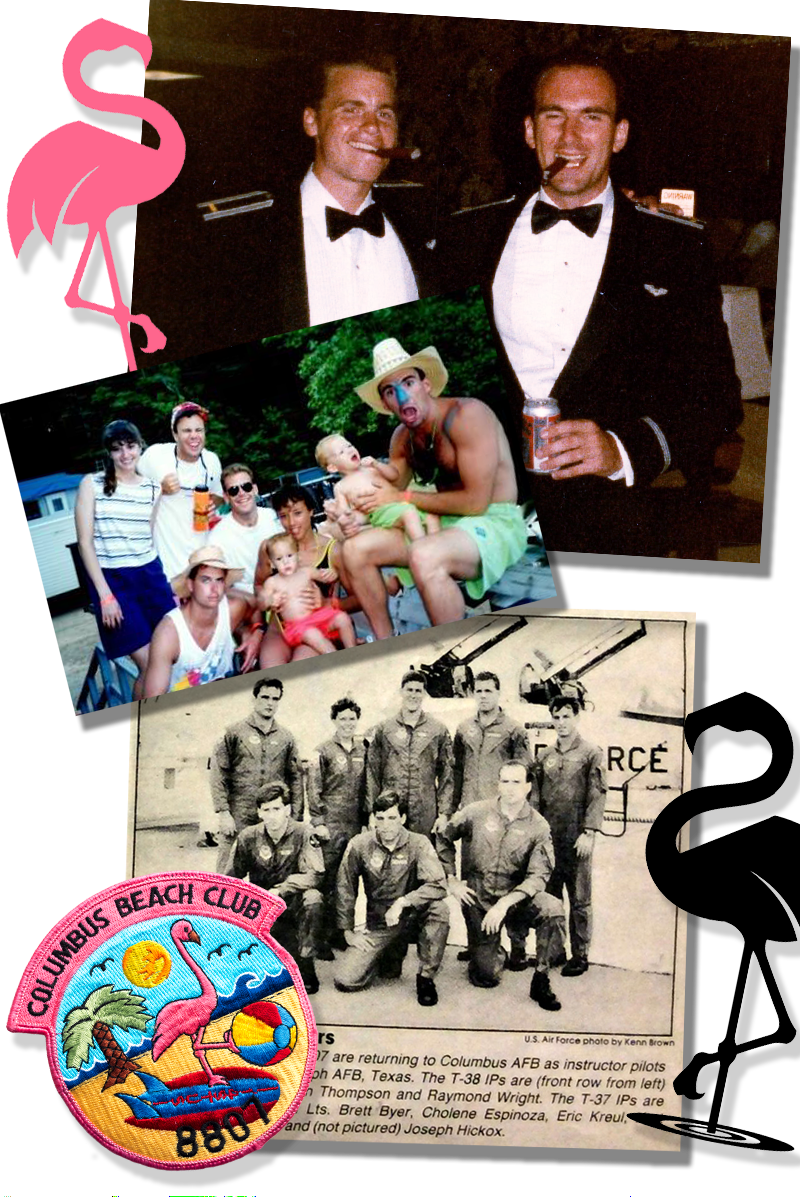"Webster defines 'dictionary' as a reference book that contains words listed in alphabetical order that tells you what they mean."
Ever heard someone start off a lecture or presentation like this?
Nice research!
We have words written on papyrus dating back 5,000 years, and the deep thinker to whom I am supposed to give my undivided attention for the next hour enlightens me with the wit and wisdom of Noah Webster.
In UPT, every academic lesson we sat through began with an icebreaker that was nearly as insightful and usually more painful. Most of the time, it would be a mind-blowing math problem. Sometimes, it might just be an inappropriate joke. A couple of times, I volunteered to offer the opening icebreaker, and whenever I was chosen, my goal was always to make it stupider than anyone could ever imagine.
Initially, this scene was intended to open the "Cone of Confusion" chapter of IF YOU AIN'T A PILOT. Though funny, like most icebreakers, it had nothing to do with the information that followed. So, it was cut and so was the character that I had as our academic instructor that day.
I can't remember all the exact details of this story, but I really did something like this in UPT, and it really got the desired result from both my classmates and our instructor. If you ever find yourself at a loss for how to open a presentation to a group, please feel free to steal this one.
“ICE BREAKER”
“Think of a number from one to thirty-one,” I challenged the class at the beginning of the academic review for our Instrument flying lessons in advance of our big test. Lieutenant Peppard, our academic instructor for the morning, had asked if anyone had a fun icebreaker with which to begin class. I didn’t have one, but I volunteered anyway, thinking I could just wing it once I got going.
“Now, take the prime number that is nearest on the number line to the number you thought of, and add it to your number,” I instructed. I waited for the wheels to grind for a moment, giving everyone an opportunity to figure the appropriate prime numbers and make their calculations.
“Next,” I said, “double your new number, and add four-point-five.” These icebreaker things were so stupid. At the beginning of just about every academic class, our instructor-- usually Captain Van Dorn and sometimes Lieutenant Peppard-- would ask us to perform a long calculation, and at the end of the calculation, the instructor would predict our number, and we’d all be blown away! Someone needed to illustrate just how stupid these were, and I stepped up to be that someone.
“Those of you with an even number, put your pencils down. The rest of you, round your number to the nearest integer,” I continued. Inevitably, somewhere in the calculations, Captain Van Dorn or Lieutenant Peppard would ask us to multiply our number by nine and add all the digits of the product together, and of course, this would result in everybody’s number turning into nine. Or maybe we’d have to multiply our original number by 10 and then divide by five and then by two, and we’d amazingly end up with our original number. Amazing!
“Subtract one hundred and eleven from your integer,” I stated, pulling a number out of nowhere. I didn’t really know how to get to where I was going with my icebreaker, but I knew I could figure it out, and I could tell from the look on most of the faces in the class that it didn’t matter, because everyone was busy following along.
“Take the absolute value of your new result,” I said, realizing that I’d just turned most everyone’s numbers negative. “Now, multiply by pi, rounded to two digits.”
By this point, I was trying my best to keep a straight face, but Chuck was on to me, and seeing her grinning from ear-to-ear, I all but lost my composure at the front of the class. Before Lieutenant Peppard caught onto to what I was doing, it was time to wrap things up.
“Divide your new number by itself, and then, add five.” I paused for just a moment, thinking this wouldn’t require too much calculating. I had thought of saying, “multiply by zero,” but that would have been too easy.
“By show of hands, how many of you now have the number six?” I asked and lifted my hand up high, not really caring to know if anyone else had solved the calculation by reaching the number six. I only hoped that my icebreaker had demonstrated how stupid these math-equation-icebreakers actually were.
“Hold on a second,” Al Turbiglio called out seemingly on the verge of a meltdown, his pencil feverishly scratching marks on his paper. “What came after multiplying by pi?”
“Would you like us to wait, Lieutenant Turbiglio?” Lieutenant Peppard asked, assuming control of the class as I took my seat. “We’ve now got less than an hour to review for your Instrument exam at the end of the week, but I can wait for you to finish, if you’d like.”
Al put his pencil down, visibly bummed that he hadn’t finished his calculation. He pulled out his flash cards and his heavily highlighted Instrument flying workbook to indicate to our instructor that he’d rather review for our upcoming test.
